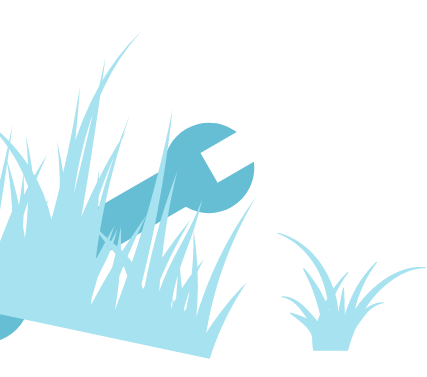Welcome to Ready & Able, formerly known as David LeRoy Plumbing! Although our name and brand have changed, we are still here to serve you and all of your plumbing, heating, cooling, and air quality needs!


Water temperatures in York, Pennsylvania, can get downright frigid. It’s not easy to save money on heating expenses when temperatures drop so low. Therefore, you want your heating system to be optimized so that, although it’s running almost all the time, you get the biggest bang for your buck. There are a few simple steps that you can take in conjunction with your HVAC technician to ensure that your HVAC system is functioning at peak efficiency during the winter.
Before programmable thermostats became available, you had to use a manual thermostat to maintain the correct temperature in your home during the winter. This created a couple of dilemmas. You could come home during the winter to a cold home, turn on your furnace, and let it heat up over the next 30 minutes. Or you could keep your heater running while you were gone, but the result was higher heating bills because your furnace was running when there was no one in the house.
Programmable thermostats came on the market in the late 80s and early 90s. You can customize your heating with a programmable thermostat to fit your lifestyle. The savings you enjoy will help offset the cost of installing the programmable thermostat. A programmable thermostat gives you precise temperature control. Manual thermostats have a five-degree variance between the temperature you set on the thermostat and the air in your home. That temperature variance impacts your comfort and can affect your heating cost to the tune of up to two percent.
A programmable thermostat allows for zone heating. You can divide your home into different zones based on their heating requirements. For example, at night, you can have one zone as your sleeping area with a specific temperature, whereas the rest of the house will have a different temperature during the night. This can lead to significant savings.
When you constantly run your HVAC system, you can shorten its lifecycle. Using a programmable thermostat, the HVAC system only runs when you need it. This lets you take pressure off your furnace, making it last longer.
If you want to reduce energy costs, consider making a major adjustment to your thermostat settings. Set the thermostat to about 68°F, as long as it is bearable for those in your household. Lowering the temperature by about 10% can result in savings of up to 10% on your bill. As part of optimizing your HVAC system, avoid shutting the heating system off completely if you’ll only be away from your home for a short time. For example, if you’re going to the store or running errands, lower the temperature, but don’t turn off your HVAC system. This prevents the ductwork from cooling down significantly, meaning your heater won’t have to run longer to heat up the ductwork when you return, ultimately achieving the goal of bringing your home back up to the right temperature.
Temperatures can fluctuate drastically during late autumn, winter, and early spring. Some days can be slightly chilly, while others can be freezing cold. Your boiler responds to all drops in temperature in the same way, with a full throttle to the burner until your home reaches the desired indoor temperature. An outdoor reset control works with your boiler to keep the system’s water temperature lower if outdoor temperatures are higher. This minimizes indoor temperature fluctuations and leads to more efficient heating processes within the home.
A smart thermostat, reset controllers, and other devices are external components that help optimize the boiler system. However, their effectiveness is limited if the boiler is not of the highest quality. Use a combination boiler that handles both your space and domestic water heating for maximum efficiency. Combining a boiler and a tankless domestic water heater in one compact unit is the most efficient way to optimize your home heating. With no hot water stored in the tank, the boiler circulates hot water through the exchanger, heating incoming cold water on demand. This approach offers higher efficiency because water is only heated when needed, reducing energy waste throughout the day. Additionally, these units provide significant space savings by integrating both water heating and space heating into a single unit.
Insulation acts as a barrier. It helps you keep your home comfortable throughout the year and maintain consistent temperatures during the winter by preventing the escape of air. This contributes to energy efficiency and minimizes the need for your boiler to excessively heat your home during the winter. This leads to lower energy bills and a reduced carbon footprint. Insulation reduces heat transfer through the walls, floors, and ceilings. This means your boiler does not have to work as hard to maintain a comfortable living environment for you and your family.
A major issue affecting boiler optimization is not getting a sufficient amount of airflow. A certain percentage of oxidant is needed for proper combustion of fuel inside the boiler. If there’s not enough air present, the carbon in the fuel gets oxidized, making carbon monoxide. This causes less heat to be released because the fuel can’t burn completely. This lowers fuel use efficiency. Lower air creates carbon monoxide, smoke, and other dangerous gases. The extra air comes in cold and is sent out of the heat stack hot, wasting heat.
If your radiators need bleeding, it takes a lot longer to heat your home. When air is trapped in your central heating system, it takes longer for your radiators to heat up fully. With time, this is going to impact your energy bills. To check if your radiators need to be bled, just turn your heating up and assess if they are heating up as fast as they used to or if they take longer than normal. Another sign that your radiators need to be bled is that there are random cold spots. Talk to your HVAC technicians to have them help you with bleeding the radiators.
One of the most common causes of boiler inefficiency is insufficient pressure. When your boiler is not properly pressurized, the entire central heating system in your home does not operate correctly. This means your radiators won’t heat up as they should, and it takes longer to heat your home. As with most boiler inefficiencies, over time, you’ll feel this impact in your pocket when it comes to energy bills. A general rule of thumb is that the boiler pressure gauge should read about 1.5 bar. If it’s lower than this, consult your HVAC technician about repressuring your boiler.
When it comes to HVAC and plumbing in Pennsylvania, Ready & Able Plumbing, Heating & Air stands out for our exceptional quality and customer satisfaction. Since 1998, we have been serving our community and have built a strong reputation for our expertise and reliability. We maintain an unwavering focus on providing excellent customer service and delivering superior results, making us the go-to option for homeowners in our area.
Our services include backflow testing and repairs, emergency plumbing services, and wastewater pump services. We work on garbage disposals, offer pipe replacements, and conduct general plumbing maintenance. Additionally, we provide HVAC installation, maintenance, and repair services, covering geothermal systems, boilers, ductless mini-splits, gas furnaces, and heat pumps. Our offerings extend to indoor air quality testing, duct cleaning, drain cleaning, and water treatment services. Contact Ready & Able Plumbing, Heating & Air today and discover for yourself why we have been a trusted local choice since 1998 for customers’ plumbing, heating, cooling, and air quality needs.
Welcome to Ready & Able, formerly known as David LeRoy Plumbing! Although our name and brand have changed, we are still here to serve you and all of your plumbing, heating, cooling, and air quality needs!